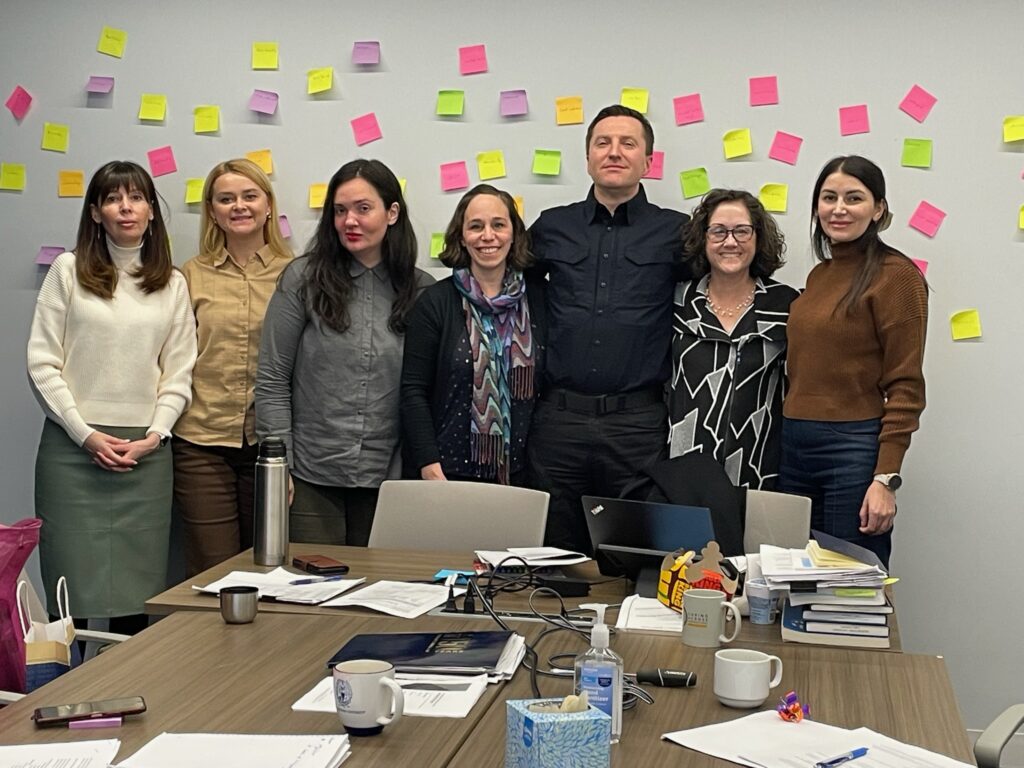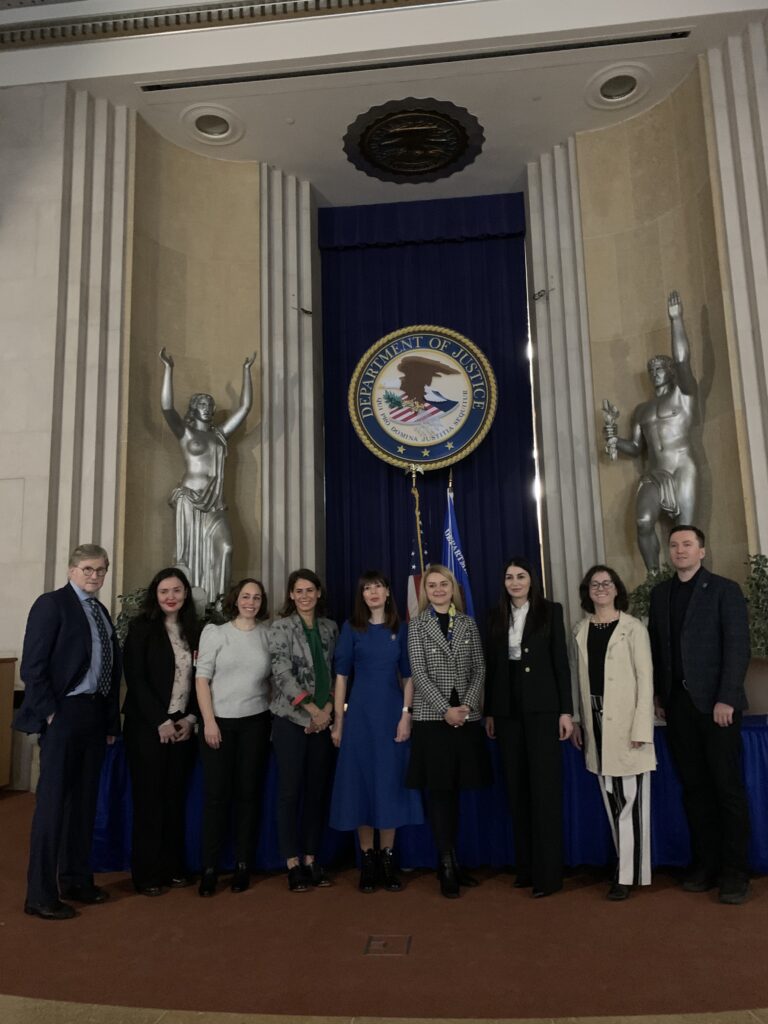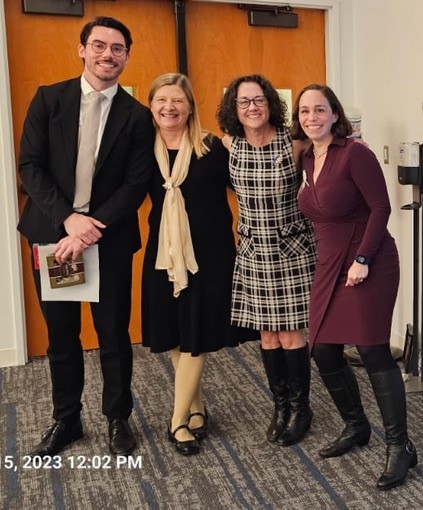Posted by Stephen Horowitz, Lecturer of Legal English

I and others on the Georgetown Legal English faculty have been very involved over the past two years in providing Legal English support to Ukrainian law schools in connection with a larger rule-of-law initiative.
What we hadn’t realized until my colleague Prof. John Dundon saw the below post on the Forensic Linguistics listserv is that there’s a fantastic English-Ukrainian legal dictionary translation project that has also been well underway and is also connected to rule of law efforts. We were extremely excited to learn that such a project exists and have already been in touch with the organizers to figure out if there might be any ways to collaborate or provide support.
Below is the text of the original announcement. It’s for an in-person event in the UK. But if you contact the organizer, you can also get access to a Zoom link.
***************

Supporting the Rule of Law in Ukraine: The role of the English-Ukrainian legal dictionary translation project
Tuesday 15th October, 10:00-14:15 Lloyd Suite, Edgbaston Park Hotel, University of Birmingham, UK
Dear Colleagues,
We are delighted to invite you to a research event showcasing a UKRI funded English-Ukrainian Legal Dictionary translation project. Legal and linguistic experts from Ukraine’s Constitutional Court, the Department of Constitutional Law at Ivan Franko National University Lviv, and the University of Birmingham Law School, have combined their extensive expertise to develop an ‘English-Ukrainian’ Legal Dictionary.’ Through historical and legal analysis, this first of its kind dictionary will rectify the acute problems that continued application of post-Soviet legal terminology cause for understanding the rule of law in Ukrainian jurisprudence.
By providing correct translations of over 5,000 English-language legal terms, we seek to further embed the rule of law in Ukraine, support Ukraine’s development as a constitutional democracy and advance Euro-Atlantic integration. We invite you to attend this showcase event to meet the lead researchers and practitioners who have developed this unique handbook for scientists, human rights defenders, lawyers, judges, parliamentarians, and everyone who deals with international legal documents. Join us and lend your support to this interinstitutional initiative to help establish the rule of law in Ukraine and enshrine Ukrainian independence from Russian-dominated legal interpretation.
Register here: https://forms.office.com/e/afjpm7rNRT
Full event schedule below.
Kind regards
Hannah Lowe
Global Partnerships Manager (Europe)
University of Birmingham
***************
Event Schedule
10:00-10:30
Coffee and registrations
10:30-10:40
Welcome
Professor Robin Mason, Pro-Vice-Chancellor (International), University of Birmingham
10.40-11.05
The Case for an English-Ukrainian Legal Dictionary
Mr Serhiy Holovaty, Chairman of the Standing Committee on Legal Terminology of the Constitutional Court of Ukraine. Head of the Ukrainian Academy of Legal Sciences. (Former Chief Justice of the Constitutional Court of Ukraine)
11.05-11.30
The Dictionary’s impact and real-world application in the Ukrainian legal context
Professor Serhii Riznyk, Justice, Constitutional Court of Ukraine
Professor Olena Boryslavska, Head of the Department of Constitutional Law, Ivan Franko National University of Lviv
11.30 -11.50
Coffee break
11.50-12.15
Compiling the Dictionary’s 5000 terms and translations: linguistic, legal and phonological principles Associate
Professor Nataliia Hrynia, Department of Foreign Languages for the Humanities, Ivan Franko National University of Lviv
Professor Bohdan Azhnyuk, Director of the O. O. Potebnia Institute of Linguistics of the National Academy of Sciences of Ukraine, Kyiv
12:15-12:40
Validating terms, translations and English Case Law examples: the British-Ukrainian collaborative process
Professor Lisa Webley, Head of the Centre for Research in Professional and Legal Education, Birmingham Law School, University of Birmingham
Student researchers, Birmingham Law School, University of Birmingham
12.40-13.15
Q&A/Panel discussion
13:15-14:15
Lunch and networking




